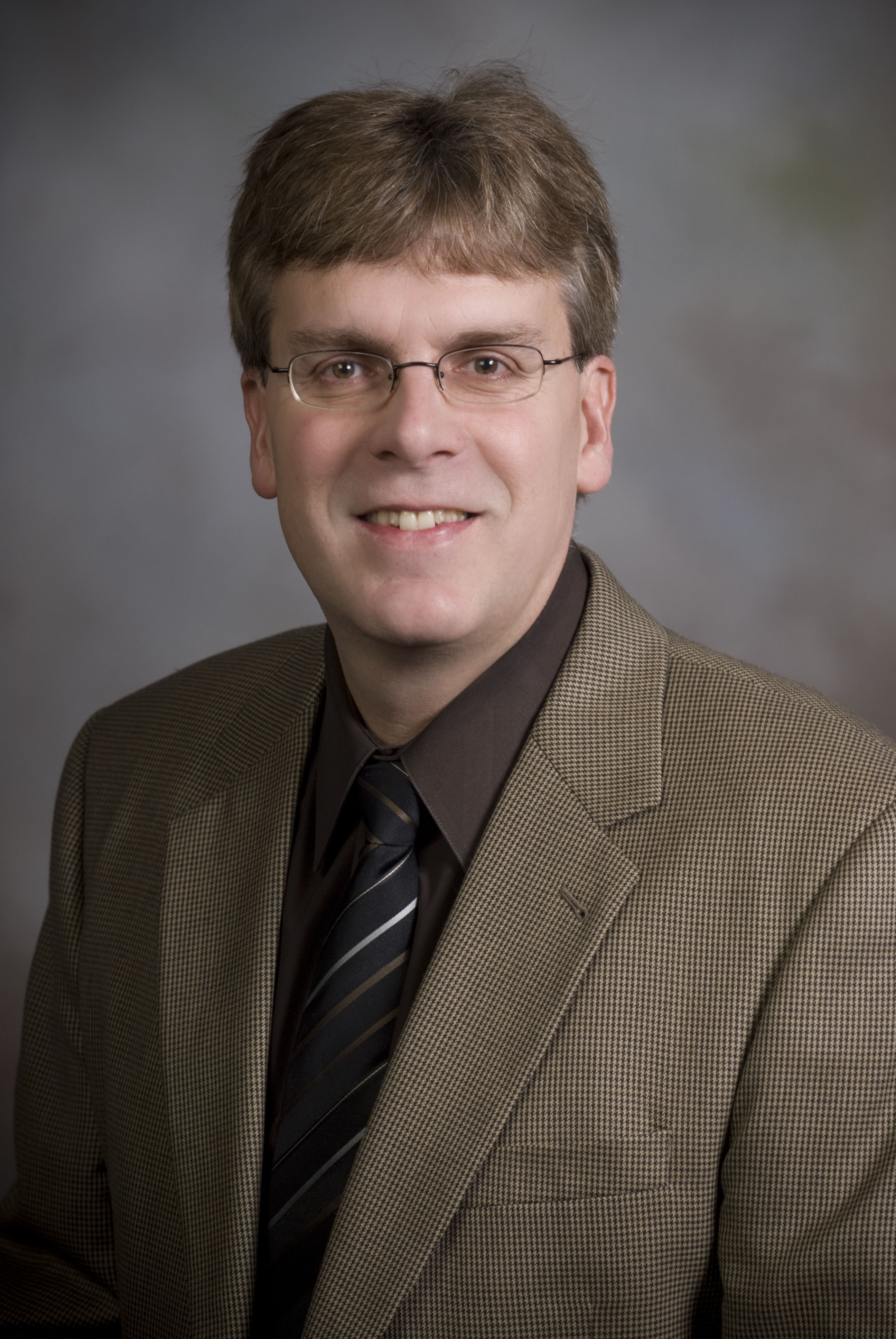Timothy Long named new director of Macromolecules and Interfaces Institute

Timothy Long, a professor of chemistry and associate dean for research and international outreach in the College of Science at Virginia Tech, has been named director of the university's Macromolecules and Interfaces Institute, announced Robert W. Walters, vice president for research.
The Macromolecules and Interfaces Institute began at Virginia Tech in 2004 to harness the university’s scientific and engineering expertise in polymers — crucial materials in the multibillion dollar chemical and manufacturing industries.
“Dr. Long will advance the national and international ranking of the polymer program, nurture team science, and uphold the university’s reputation as a collaborative resource for industrial engagement,” Walters said.
Long follows in the footsteps of the institute’s first permanent director S. Richard Turner, a Fellow of the Division of Polymer Chemistry of the American Chemical Society, who was recruited from Eastman Chemical Co. and has led the institute since 2005.
“Virginia Tech is recognized around the world for its polymer science and engineering program,” Long said. “MII enables the university to have an immense impact in technologies that interface with food packaging, alternate energy sources and energy storage, electronics, medical devices, 3-D printing, and a vast array of applications vital for manufacturing and the economy.”
Polymers, also known as macromolecules, are long chains of repeating units.
In nature, all proteins are polymers, plants are made of a polymer called cellulose, and people share family traits through DNA — a polymer.
In addition, synthetic polymers such as plastics, foams, and adhesives are vital for many everyday consumer products.
“The institute’s role is to rally the faculty, provide unique facilities and instrumentation, and ensure materials and methods find their way from our laboratories and into people’s homes,” Long said. “We are committed to the challenge of inventing the future, but the crucial step is to make sure our inventions have an impact in society. That makes outreach an important part of our mission.”
The plastics industry alone is the third-largest manufacturing sector in the United States, accounting for more than $374 billion in annual shipments and directly employing nearly 900,000 people, according to the Society of the Plastics Industry trade association.
To stay focused on opportunities, the institute works with an advisory board of 12 experts hailing from the chemical, biological, engineering, energy, and consumer products industries.
“The advisory board is our reality check,” Long said. “Success demands an interdisciplinary approach in terms of molecules, products, and solutions, so our students receive training that transcends traditional boundaries. Students and faculty address issues and produce innovations that have an immense societal impact. Advisory board members provide confirmation we are correctly focused and our integrated research and educational mission is sound.”
Long received his doctoral degree from Virginia Tech and spent nearly a decade as a research scientist at Eastman Chemical Co. before returning as a professor in the Department of Chemistry in 1998.
In 2004, before Turner became the institute’s first permanent director, Long served as interim co-director of the Macromolecules and Interfaces Institute alongside Jack Lesko, now the associate dean for research and graduate studies in the College of Engineering.
“Because I am an alumnus, because of the institute's mission, because of the work of Richard Turner and his efforts for so many faculty members and students, I feel an obligation to continue our tradition of excellence,” Long said.
The Macromolecules and Interfaces Institute will leverage the capabilities and infrastructure of the Institute for Critical Technology and Applied Science, to identify new opportunities for polymer research at the intersection of science and engineering.
The main administrative offices for the institute will now be located in ICTAS II of the life science corridor of the Blacksburg campus to enhance interdisciplinary research, Long said.
Long has more than 40 patents in the field of macromolecular science and engineering, and has recently exceeded 230 peer-reviewed publications.
He has served as associate director of interdisciplinary research and education for the Fralin Life Science Institute and as associate dean for Research and International Outreach in the College of Science from 2010 to 2014.
In addition, Long has maintained a 20-member interdisciplinary research group and has been awarded about $41 million in research funding over the past 16 years.
Long has also continued industry partnerships with global chemical company BASF, Elevance Renewable Sciences Inc., IBM Corp., 3M Co., Kimberly-Clark Corp., Henkel AG and Co., Bayer AG, Kraton Performance Polymers Inc., and Solvay Co.
He has received the American Chemical Society PMSE Cooperative Research Award and the POLY Mark Scholars Award, as well as the Pressure Sensitive Tape Council Carl Dahlquist Award. He received Virginia Tech’s Alumni Award for Research Excellence, and is a Fellow of the American Chemical Society.
Dedicated to its motto, Ut Prosim (That I May Serve), Virginia Tech takes a hands-on, engaging approach to education, preparing scholars to be leaders in their fields and communities. As the commonwealth’s most comprehensive university and its leading research institution, Virginia Tech offers 240 undergraduate and graduate degree programs to more than 31,000 students and manages a research portfolio of $513 million. The university fulfills its land-grant mission of transforming knowledge to practice through technological leadership and by fueling economic growth and job creation locally, regionally, and across Virginia.




